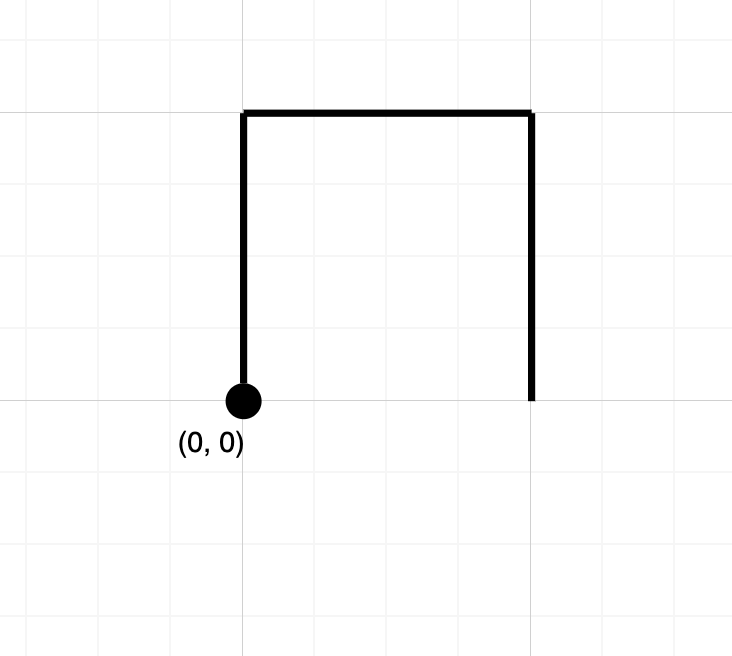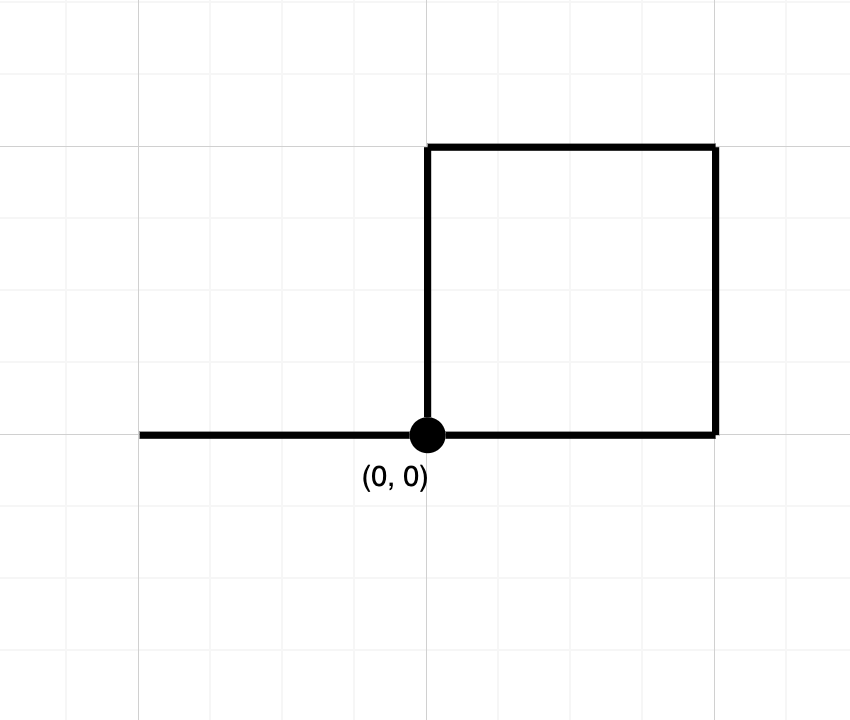LeetCode-in-Java
1496. Path Crossing
Easy
Given a string path, where path[i] = 'N', 'S', 'E' or 'W', each representing moving one unit north, south, east, or west, respectively. You start at the origin (0, 0) on a 2D plane and walk on the path specified by path.
Return true if the path crosses itself at any point, that is, if at any time you are on a location you have previously visited. Return false otherwise.
Example 1:

Input: path = “NES”
Output: false
Explanation: Notice that the path doesn’t cross any point more than once.
Example 2:

Input: path = “NESWW”
Output: true
Explanation: Notice that the path visits the origin twice.
Constraints:
1 <= path.length <= 104path[i]is either'N','S','E', or'W'.
Solution
import java.util.ArrayDeque;
import java.util.Deque;
import java.util.Objects;
public class Solution {
public boolean isPathCrossing(String path) {
Deque<Coord> visited = new ArrayDeque<>();
visited.add(new Coord(0, 0));
for (char c : path.toCharArray()) {
Coord last = visited.peek();
if (c == 'N') {
Coord nextStep = new Coord(last.x, last.y + 1);
if (visited.contains(nextStep)) {
return true;
}
visited.add(nextStep);
} else if (c == 'S') {
Coord nextStep = new Coord(last.x, last.y - 1);
if (visited.contains(nextStep)) {
return true;
}
visited.add(nextStep);
} else if (c == 'E') {
Coord nextStep = new Coord(last.x - 1, last.y);
if (visited.contains(nextStep)) {
return true;
}
visited.add(nextStep);
} else if (c == 'W') {
Coord nextStep = new Coord(last.x + 1, last.y);
if (visited.contains(nextStep)) {
return true;
}
visited.add(nextStep);
}
}
return false;
}
private static class Coord {
int x;
int y;
public Coord(int x, int y) {
this.x = x;
this.y = y;
}
@Override
public boolean equals(Object o) {
if (this == o) {
return true;
}
if (o == null || getClass() != o.getClass()) {
return false;
}
Coord coord = (Coord) o;
return x == coord.x && y == coord.y;
}
@Override
public int hashCode() {
return Objects.hash(x, y);
}
}
}

